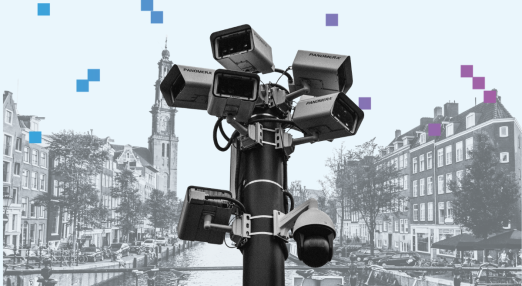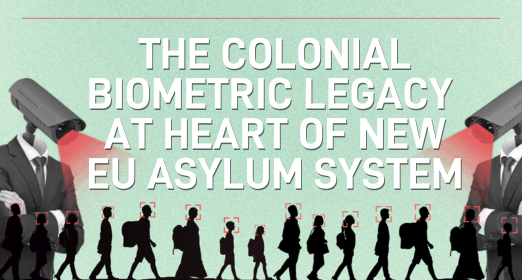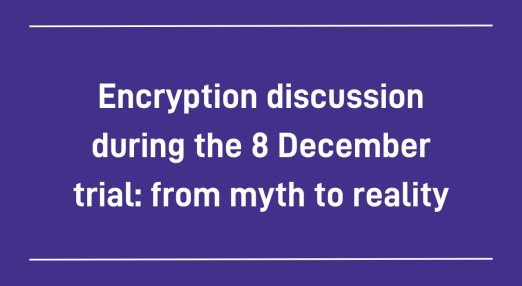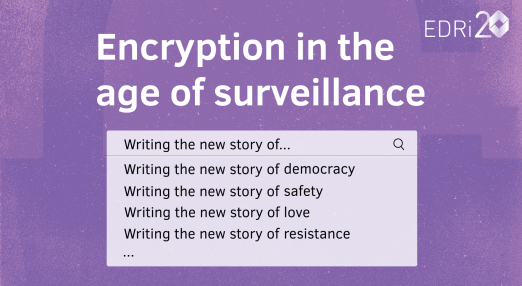Fighting for algorithmic justice: lessons learned in working closely with affected people
Bits of Freedom shares lessons learned while working on “Amsterdam Top400”, an invasive municipality project which involved the use of predictive policing and led to unwanted interference in the private lives of young people. Together with a coalition of professionals from different background and affected individuals, they explored the possibility of holding the municipality of Amsterdam accountable for violations of children’s rights, data protection law, and fundamental freedoms.
Filter resources
-

Fighting for algorithmic justice: lessons learned in working closely with affected people
Bits of Freedom shares lessons learned while working on “Amsterdam Top400”, an invasive municipality project which involved the use of predictive policing and led to unwanted interference in the private lives of young people. Together with a coalition of professionals from different background and affected individuals, they explored the possibility of holding the municipality of Amsterdam accountable for violations of children’s rights, data protection law, and fundamental freedoms.
Read more
-

New research reveals how Snapchat uses notifications to manipulate users
A new study by Bits of Freedom shows that Snapchat sends users misleading notifications. This is banned under the Digital Services Act which prohibits misleading and manipulative design on online platforms. The results of this study make for important input into possible DSA enforcement actions and support including rules about attention-grabbing notifications in the upcoming Digital Fairness Act.
Read more
-

CNAF’s discriminatory scoring algorithm: 10 new organisations join the case before the Conseil d’État in France
10 organisation, including EDRi, have joined an ongoing coalition effort to challenge the discriminatory algorithms used by the family branch of the French welfare system (CNAF). In the current deregulation spree by the European Commission, this legal action represents resistance to the rollback of fundamental rights protections and the increase of rights infringing legislation. Read an update about the strengthened coalition and the legal action they have taken so far.
Read more
-

Avoiding regulation of biometric surveillance and loyalty applications: The 20th Big Brother Awards took place in the Czech Republic
For the twentieth time, the Czech organization and EDRi member IuRe (Iuridicum Remedium) awarded prizes to the greatest snoopers.
Read more
-

Pre-travel controls: Digitalising travel documents
We are responding to a public consultation on the European Commissions’ digitalising travel documents proposal. This proposal promises convenience in travel but could pave the way for biometric mass surveillance and automated discrimination.
Read more
-

Deported for reporting a crime: the paradox of securitisation policies
The review of the Return Directive, which governs detention and deportation procedures in the EU, should not lead to the criminalisation of undocumented people. Rather, it should uphold their fundamental right to personal data protection by establishing firewalls that allow them to report crimes without fears of being deported.
Read more
-

Rushed EU eID Wallet risks privacy and security: Calls for safeguards are getting ignored in hasty eIDAS implementation
From a visit to the doctor to public transport tickets , the European eID will handle our most sensitive personal data in a wide range of every-day applications. Yet, speed seems more important to the European Commission than a properly functioning eID system that is safe & secure to use.
Read more
-

Surveilling Europe’s edges: when digitalisation means dehumanisation
In May 2024, Access Now’s Caterina Rodelli travelled across Greece to meet with local civil society organisations supporting migrant people and monitoring human rights violations, and to see first-hand how and where surveillance technologies are deployed at Europe’s borders. In the first of a three-part blog series reflecting on what she saw, Caterina explains how, all too often, digitalising borders dehumanises the people trying to cross them.
Read more
-

The colonial biometric legacy at heart of new EU asylum system
On Wednesday (10 April), the EU is set to vote on a new set of asylum and migration reforms. Among the many controversial changes proposed in the new migration pact, one went almost unnoticed — a seemingly innocent reform of the EU's asylum database, EURODAC. Although framed as purely technical adjustments, the reality is far more malicious. The changes to EURODAC will massively exacerbate violence against people on the move.
Read more
-

Encryption discussion during the 8 December trial: from myth to reality
The defendents’ fundamental right to privacy was treated flippantly and shown little interest by the judges and prosecution of the Paris criminal court in the ‘8 December’ trial hearings. This is a cause for concern and could lead to the justification of police’s ever-increasing surveillance.
Read more
-

Political negotiations continue: EU lawmakers fail to agree on strong rules for regulating political advertising
On 10 October, the European Parliament, the Commission and the EU Council had their fifth meeting (in the so-called trilogues) to find an agreement on the transparency and targeting of political advertising. The three institutions could not come to a consensus. Here is why.
Read more
-

Event summary: Encryption in the age of surveillance
The EDRi-organised event on encryption, surveillance, and privacy brought together key policymakers, academics, activists and members of the press to build a better understanding of why encryption is important for people and democracy.
Read more
